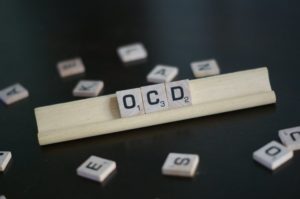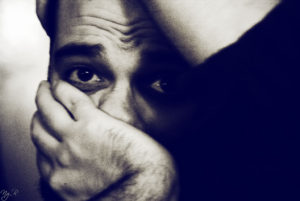Obsessive Compulsive Behavior (OCD) is a mental health disorder where the afflicted person has constant unwanted thoughts and feelings. Plagued with intrusive thoughts, the person may end up performing an action repeatedly.
 Examples of these actions are excessive washing of the hands to the point the skin is rubbed raw or repeating a daily ritual before leaving your home. The popular perception of OCD often is skewed. For instance, cleaning your home until not a single trace of dust exists doesn’t necessarily mean you have OCD.
Examples of these actions are excessive washing of the hands to the point the skin is rubbed raw or repeating a daily ritual before leaving your home. The popular perception of OCD often is skewed. For instance, cleaning your home until not a single trace of dust exists doesn’t necessarily mean you have OCD.
One indicator that you are battling symptoms of OCD is if these irrational behaviors begin to interfere with everyday life. Some people could have regimented routines, but it doesn’t affect their daily life. This isn’t Obsessive Compulsive Disorder.
If the person isn’t able to perform the obsessive or compulsive action this could cause that person to not be able to function and increase stress and anxiety levels. Usually, the person with OCD can recognize that the unwanted thoughts are not necessarily valid, but it doesn’t stop the compulsive behavior.
Steps to Diagnose OCD
Before someone can be accurately diagnosed with OCD, there are specific symptoms of OCD that need to be identified. This person can have compulsions, obsessions or even both present in their life.
What are Obsessions?
- Repetitious and constant ideas, desires, or visuals that are unwanted and usually trigger anxiety.
- Ideas that a person tries to get rid of by substituting some other behavior (i.e. doing a compulsive act).
What are Compulsions?
- Recurring behaviors (e.g., hand washing) or thoughts (e.g., counting) that the person feels compelled to do in response to an obsession or because of certain rules.
- Actions done to prevent or lower anxiety levels or completely prevent something from happening. Normally, these actions aren’t connected in a realistic way to the event they are attempting to prevent (e.g., count to 30 each morning to keep the family safe).
It’s critical to identify if the compulsions or obsessions are time-consuming when diagnosing OCD. The irrational behaviors or thoughts would need to consume more than one hour a day or cause severe distress in your social or work life.
OCD doesn’t necessarily mean a person is suffering from substance abuse. Other medical conditions can have similar symptoms. Let’s say a person has an obsession with their appearance. This is referred to as body dysmorphic disorder. It’s important to talk thoroughly with a doctor about what you are experiencing to come to an accurate diagnosis.
Examples of Obsessive Compulsions:
 Cleaning and washing hands
Cleaning and washing hands- Constantly counting
- Incessant tapping
- Excessive checking of things (e.g., door locks).
- Repeatedly making sure a family member or friend is safe.
- Ordering objects continuously until they are “perfect”
Examples of Obsessive Thoughts:
- Petrified of germs
- Fear of harming yourself or those around you
- Intrusive sexual or violent thought patterns and/or visuals
- Superstitions where excessive attentions is giving to something with “luck” or “unluckiness”
Treatment Options for Symptoms of OCD
Therapy should be an option you consider if you think you are living with symptoms OCD. Therapists have a variety of treatments that are designed to work through obsessions and help you navigate other symptoms of OCD.
Exposure and Response Prevention (ERP) is a form of Cognitive Behavioral Therapy (CBT) and is used by therapists who are specialized in treating OCD. In this therapy, the person is exposed to situations or thoughts that trigger the obsessive behaviors.
The response part of the therapy is having the power to not engage in the behavior that’s been triggered through exposure. Although this begins in the presence of a therapist, the goal is that eventually, the patient can do these exercises on their own.
It can sound intimidated to purposely expose yourself to things you normally want to avoid. In a controlled environment, this person becomes familiar with actively making a choice to face their obsessions and find the strategies and strength to navigate the OCD.
Medication
Taking medication is another way to treat OCD. Of course, you are not required to take medication that you aren’t comfortable consuming. However, meeting with a psychiatrist and exploring this option could be helpful on your journey to living with OCD.
SSRIs, a type of medication, have been beneficial for people living with OCD. A higher dosage may be required than the regular dosage for someone with depression, but the medication is safe with relatively few side effects.
How to Help Yourself
A professional counselor can only take you so far. Every healing journey requires active participation to see lasting results. After counseling sessions, you will be given instructions on how to practice what you are learning in your personal life outside the walls of counseling.
There are also simple practices you can being to help your overall wellbeing. Discovering methods to relax on your own is key, as well as doing constructive activities to get your mind off OCD treatment.
Yoga and Meditation
 Yoga and meditation are proven to relax the body and mind. Not to mention yoga is good for posture and stretching too. Treatment for OCD can become exhausting as you work through compulsive behaviors. Yoga and meditation are solutions to calm the mind and begin to practice relaxing.
Yoga and meditation are proven to relax the body and mind. Not to mention yoga is good for posture and stretching too. Treatment for OCD can become exhausting as you work through compulsive behaviors. Yoga and meditation are solutions to calm the mind and begin to practice relaxing.
Mindfulness Techniques
Mindfulness is another calming technique. A therapist is able to guide you through mindfulness techniques and point you to some material so you can practice in the comfort of your own home.
Exercise
Exercising is the tried-and-true solution for many health conditions. You can easily blow off stream or reduce your anxiety through different forms of exercise. The endorphins that are released send positive messages throughout your body. You can start by taking a brisk walk outside to enjoy the sunshine, fresh air, and scenery.
Become Your Own Advocate
You are in charge of pumping yourself up. Emotions can swing like a pendulum if you allow what other people say form your opinion of yourself. You are the one who is going to benefit from the hard work you put. Make sure you pat yourself on the back, send extra words of affirmation and celebrate all the wins along the way. Don’t rely on someone else to accept you or affirm you.
Be Grateful for Progress
People often focus on perfection and miss every inch of progress along the way. Be thankful for each step forward that you take. You may not have reached your goal, but you aren’t giving up. Thankfulness is another way to stay positive during the journey.
Leaning on God and His Word
 God’s Word is rich with life-giving words and relatable stories. He is eager for us to draw near to him and cast our cares on Him because he loves us.
God’s Word is rich with life-giving words and relatable stories. He is eager for us to draw near to him and cast our cares on Him because he loves us.
One of my favorite verses to remind myself of when anxiety is crippling is found in Psalm 94:19: “When my anxious thoughts multiply within me, Your consolations delight my soul.”
This verse reminds me that God’s comfort can eliminate the anxiety within us. His comfort can replace our anxiety with joy. Isn’t that a beautiful passage?
Job 42:2 says, “I know that you can do all things; no purpose of yours can be thwarted.” This verse calms me down and reminds me of God’s sovereignty and power. His plans cannot be stopped by me. He is able to do more than I can even think or imagine.
Here are a few other Scriptures to look into:
Finally, brothers and sisters, whatever is true, whatever is noble, whatever is right, whatever is pure, whatever is lovely, whatever is admirable – if anything is excellent or praiseworthy – think about such things. – Phillipians 4:8
Fear not, for I have redeemed you; I have called you by name, you are mine. When you pass through the waters, I will be with you; and through the rivers, they shall not overwhelm you; when you walk through fire you shall not be burned, and the flame shall not consume you. For I am the Lord your God, the Holy One of Israel, your Savior. – Isaiah 43:1-3
For I am sure that neither death nor life, nor angels nor rulers, nor things present nor things to come, nor powers, nor height nor depth, nor anything else in all creation, will be able to separate us from the love of God in Christ Jesus our Lord. – Romans 8:38-39
Live Out Your Faith
You can ingest the word of God every day, but if it’s not transforming you to act then you aren’t experiencing the abundant life God has for you to enjoy. James 2:26 says, “Faith without works is dead.” Put what you are learning into practice. You need to work out your OCD in whatever you believe God is calling you to do.
You will become stronger every passing day as you apply God’s word to your everyday life. You may want to keep track of the words you are speaking out of your life. Are they words of life or are they words that are filled with doubt and discouragement?
Culver City Christian Counseling Can Help
OCD is completely treatable and you shouldn’t feel hopeless. If you, or someone you know, has symptoms of OCD, now is the time to get the help you deserve. Reach out to one of the trained counselors in Culver City today. We will make sure to find a counselor that fits your specific needs. You don’t have to fight OCD alone.
“OCD”, Courtesy of Airpix, Flickr.com, CC BY 2.0 License; “Fear”, Courtesy of Noemi Galera, Unsplash.com, CC0 License; “Balance,” courtesy of LibelSanRo, pixabay.com, CC0 License; “Prayer”, Courtesy of Reenablack, Pixabay.com, CC0 License
-
Kate Motaung: Curator
Kate Motaung is the Senior Writer, Editor, and Content Manager for a multi-state company. She is the author of several books including Letters to Grief, 101 Prayers for Comfort in Difficult Times, and A Place to Land: A Story of Longing and Belonging...





